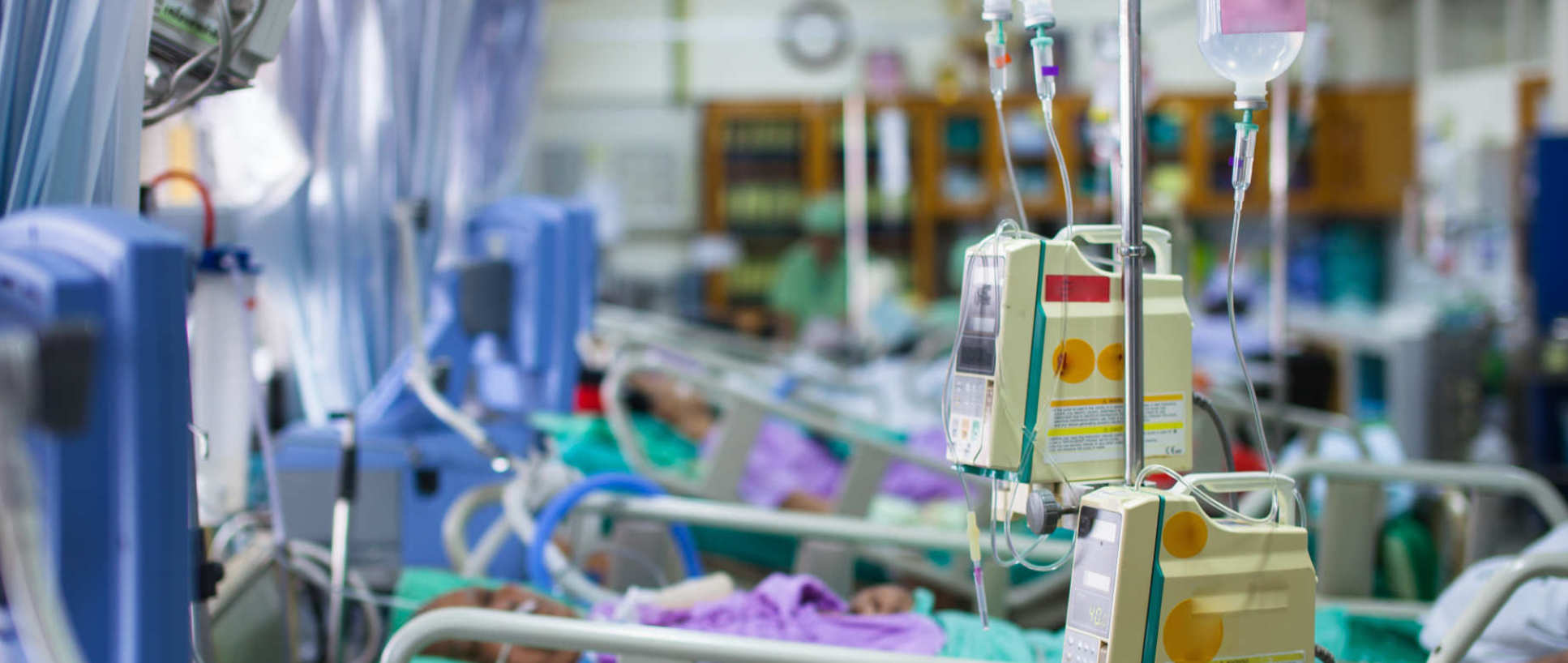BibTex format
@article{Deakin:2016:10.1016/j.resuscitation.2016.08.027,
author = {Deakin, CD and Yang, J and Nguyen, R and Zhu, J and Brett, SJ and Nolan, JP and Perkins, GD and Pogson, DG and Parnia, S},
doi = {10.1016/j.resuscitation.2016.08.027},
journal = {Resuscitation},
pages = {138--144},
title = {Effects of epinephrine on cerebral oxygenation during cardiopulmonary resuscitation: A prospective cohort study},
url = {http://dx.doi.org/10.1016/j.resuscitation.2016.08.027},
volume = {109},
year = {2016}
}
RIS format (EndNote, RefMan)
TY - JOUR
AB - BACKGROUND: Epinephrine has been presumed to improve cerebral oxygen delivery during cardiopulmonary resuscitation (CPR), but animal and registry studies suggest that epinephrine-induced capillary vasoconstriction may decrease cerebral capillary blood flow and worsen neurological outcome. The effect of epinephrine on cerebral oxygenation (rSO2) during CPR has not been documented in the clinical setting. METHODS: rSO2 was measured continuously using cerebral oximetry in patients with in-hospital cardiac arrest. During CPR, time event markers recorded the administration of 1mg epinephrine. rSO2 values were analysed for a period beginning 5min before and ending 5min after the first epinephrine administration. RESULTS: A total of 56 epinephrine doses were analysed in 36 patients during CPR. The average rSO2 value in the 5-min following epinephrine administration was 1.40% higher (95% CI=0.41-2.40%; P=0.0059) than in the 5-min period before epinephrine administration. However, there was no difference in the overall rate of change of rSO2 when comparing the 5-min period before, with the 5-min period immediately after a single bolus dose of epinephrine (0.88%/min vs 1.07%/min respectively; P=0.583), There was also no difference in the changes in rSO2 at individual 1, 2, 3, or 4-min time windows before and after a bolus dose of epinephrine (P=0.5827, 0.2371, 0.2082, and 0.6707 respectively). CONCLUSIONS: A bolus of 1mg epinephrine IV during CPR produced a small but clinically insignificant increase in rSO2 in the five minutes after administration. This is the first clinical data to demonstrate the effects of epinephrine on cerebral rSO2 during CPR.
AU - Deakin,CD
AU - Yang,J
AU - Nguyen,R
AU - Zhu,J
AU - Brett,SJ
AU - Nolan,JP
AU - Perkins,GD
AU - Pogson,DG
AU - Parnia,S
DO - 10.1016/j.resuscitation.2016.08.027
EP - 144
PY - 2016///
SN - 1873-1570
SP - 138
TI - Effects of epinephrine on cerebral oxygenation during cardiopulmonary resuscitation: A prospective cohort study
T2 - Resuscitation
UR - http://dx.doi.org/10.1016/j.resuscitation.2016.08.027
UR - http://hdl.handle.net/10044/1/40152
VL - 109
ER -



 Critical care involves the care of the sickest patients in the hospital. Critically ill patients have usually been through a significant insult to their body (such as trauma, infection, burn) and have developed organ failure and require life-support. Critical Care is the largest theme bringing together clinicians and scientists from diverse backgrounds and includes collaborative research from hospitals throughout north-west London. Investigations range from evaluating biological mechanisms of organ failure through to the development of innovative technologies which allow the short-term and long-term support and recovery of organs.
Critical care involves the care of the sickest patients in the hospital. Critically ill patients have usually been through a significant insult to their body (such as trauma, infection, burn) and have developed organ failure and require life-support. Critical Care is the largest theme bringing together clinicians and scientists from diverse backgrounds and includes collaborative research from hospitals throughout north-west London. Investigations range from evaluating biological mechanisms of organ failure through to the development of innovative technologies which allow the short-term and long-term support and recovery of organs.